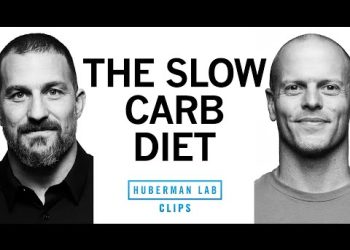Effects of Going Caffeine-Free for 30 Days
Going a month without caffeine can lead to surprising changes, both in body and mind. It’s not just about the obvious withdrawal symptoms but also understanding how caffeine affects us at a neurochemical level. This article delves into what happens when you eliminate caffeine from your routine and explores the potential benefits and strategies for managing caffeine consumption effectively.
Dopamine and Caffeine
Caffeine is best known for its energy-boosting effects, but the mechanics behind it are tied closely to our brain chemistry. When caffeine blocks adenosine receptors in the brain, it prevents the build-up of adenosine, which makes us feel tired. Simultaneously, caffeine leads to a dopamine boost, which enhances our feeling of reward and well-being. This dual action contributes significantly to caffeine’s stimulating effects and the reason why many find it addictive.
Impact on Appetite and Cravings
One of the immediate changes noticed when cutting out caffeine is a greater control over cravings and mood swings. While caffeine can act as an appetite suppressant, its absence actually allows for a more natural appetite regulation. People often report being able to better resist temptations once they’ve cut back on their caffeine intake, indicating a deeper connection between dopamine regulation and our dietary choices.
Fatigue and Withdrawal
The first week of going caffeine-free can be particularly challenging due to withdrawal symptoms. Research suggests these symptoms can start as soon as 16 hours after your last caffeine intake, manifesting as tiredness, irritability, and change in appetite. Many are surprised to find that they experience less fatigue in general once they adjust to a caffeine-free lifestyle, as the artificial energy boost of caffeine isn’t borrowing against their energy levels for later in the day.
Sleep Quality and Circadian Rhythms
Within the first two weeks, improvements in sleep are commonly reported. Caffeine spikes cortisol levels, which can disrupt circadian rhythms. Once caffeine is removed, the body gradually adapts back to its natural sleep-wake cycle, leading to more restful nights. Studies suggest that even small amounts of caffeine can have significant effects on sleep quality, making even minor reductions potentially beneficial.
Handling Headaches
Headaches are a frequent complaint during the initial phase of caffeine withdrawal. This often results from changes in cerebral blood flow. Caffeine causes vasoconstriction, reducing blood flow to the brain, and when consumption stops, a surge in blood flow can trigger headaches. Fortunately, this imbalance stabilizes with time, typically leading to fewer headaches or tension.
Mental Performance Variability
A common misconception is that caffeine enhances cognitive function. While it does increase alertness, dependency can lead to fluctuations in mental performance. Initially, quitting caffeine might lead to feeling less sharp, but over time, cognitive function stabilizes, allowing for more consistent mental clarity without the roller-coaster effects induced by caffeine highs and lows.
Hydration Benefits
Another long-term benefit of reducing caffeine intake is improved hydration. Caffeine has diuretic properties, which can lead to increased urination and potential dehydration if not balanced with adequate water intake. Over time, reducing caffeine can help your body reach a more hydrated state, contributing to overall health and wellness.
Strategic Caffeine Consumption
For those who find it difficult to give up caffeine entirely, a moderated approach can be beneficial. Using caffeine strategically, such as one day on and one day off, can help maintain sensitivity to its effects. This method allows individuals to still benefit from caffeine when needed without developing dependency, preserving its efficacy as a tool rather than a crutch.
Conclusion: Finding Balance
Ultimately, whether you choose to cut out caffeine entirely or simply reduce your intake, understanding its effects on your body and brain is crucial. A mindful approach to caffeine consumption not only supports physical health but also enhances mental clarity and emotional well-being. Consider taking periodic breaks to reset your body’s response to caffeine, enhancing your control over its consumption and increasing its positive impact when you choose to indulge.











